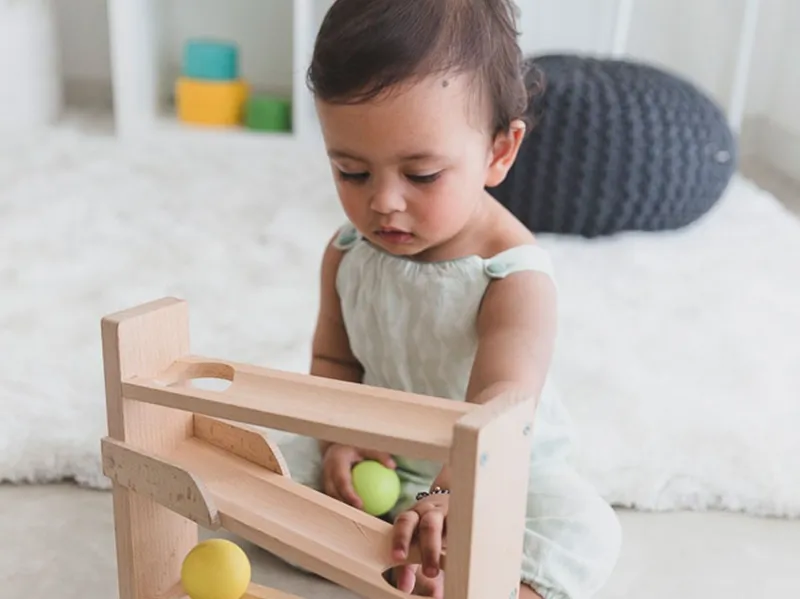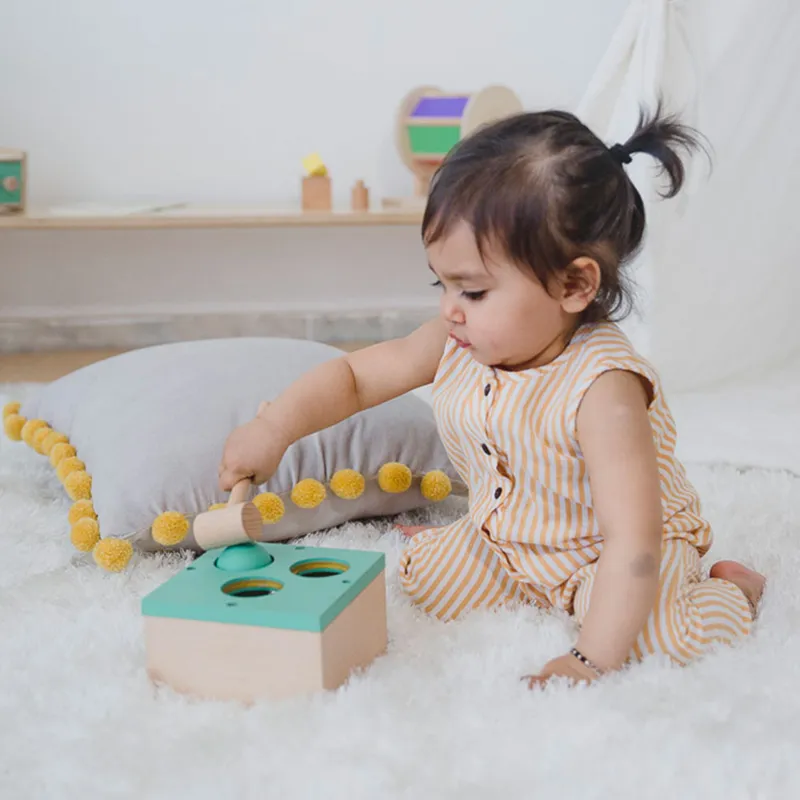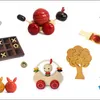This homegrown brand boosts children’s cognitive development through playtime
Delhi-based startup Curious Cub makes age-appropriate play kits based on the Montessori philosophy of education, aimed at the cognitive development of 0-3-year-olds.
Did you know that 80 percent of the human brain is formed by age three? Quite an intimidating thought considering that most children do not begin preschool before the age of two. Learning about this led Delhi-based entrepreneur and parent Shreya Mittal to launch - an early education platform that imparts age-appropriate cognitive skills through playtime. Co-founded by Shreya and her brother Pulkit Bansal, this homegrown startup was launched in May 2021.
“We want to bridge the gap between birth and playschool – the crucial age of 0-3 years. We believe in playtime with purpose – as kids learn through play. Each of our products are designed in collaboration with experts so they focus on the brain development of babies,” explains Shreya in a chat with YS Weekender.

The idea
With degrees from Lady Shri Ram College, Delhi University and Massachusetts Institute of Technology, Shreya had both the education and bent of mind to embark on her entrepreneurial journey. Her brother Pulkit graduated from Warwick University in the UK and Indian School of Business.
As a 21st century parent, Shreya was only too aware of the juggling that many fellow parents go through, making it difficult for them to spend hours researching on what babies need to learn at each micro stage of development. Her goal was to take the guesswork out of this part of parenting, and curate boxes that contain everything a parent needs for each stage of growth.
According to research, every two months a child develops a completely new skill set and goes through many developmental milestones, and each new box matches the child in his journey of development.
Learning through play is a critical part of a child’s overall development. Therefore, regular toys don’t make the cut when it comes to aiding cognition. The team at Curious Cub relied on years of research on early childhood development and distilled this knowledge into simple activities and toys which parents can implement without feeling overwhelmed or overloaded with information.
What’s more, Shreya was keen to make only wooden toys as they are environment friendly and child safe. She says that it is essential for children to be allowed to explore the toy with all their senses, including their mouth, because ‘mouthing’ aids in the development of neurons around the mouth, which are strongest at birth. “Having a completely safe toy ensures that a child can play without reservation. Hence, wooden and cloth toys are the best options to give at this tender age, as they contain no chemicals,” she says emphatically.
The USP
While there is a plethora of early learning toys available in the market, Curious Cub stands out as it models its products on the Montessori philosophy of education. Shreya elaborates, “We don’t believe we have any direct competitor. Unlike other companies, we are not selling just toys, we are creating toys that offer unique value and make parenting significantly easier.”
‘Learning by Doing’ and ‘Learning to Learn’ are the two objectives that drive the production of Curious Cub products. Most people prefer to buy active toys, where the child needs to press buttons and be entertained. These toys may entertain kids but do not help them develop essential critical thinking and fine motor skills. On the other hand, passive toys of the kind made by Curious Cub, need to be manipulated by the child and therefore spark the child’s curiosity and encourage them to explore and be active learners.
“All our toys are inspired from the passive-learning Montessori philosophy, which is backed by over 100 years of research. They work to unleash the child’s independence, creativity, perseverance, and problem-solving skills,” says Shreya, further adding, “We present parents with the right products and information at the right time. This makes them feel confident that they are giving the best possible learning to their children. We want to make the early childhood development journey easy for all parents,” she shares.
The growth
According to research platform IMARC Group, the Indian toys market was valued at $1.23 billion in 2020. This is due to the advent of advanced technology and machinery, which has encouraged manufacturers to produce modern and innovative toys. Going forward, the Indian toys market is expected to grow at a CAGR of 12.2 percent during the financial period 2021-2026. When the toys in question are niche-based, they display even higher potential for growth.
Curious Cub began with an initial investment of Rs 30 lakhs, which mostly went into making the product inventory. Some of this amount was also allocated to photoshoots and website development.
In the few months since their launch this year, they have grown to an eight-member team and earned revenues of over Rs 2 crore. They currently clock in a monthly revenue of Rs 45 lakhs.
Each box is priced at Rs 2,999 and contains 8-10 play essentials. They start from 0 months + for babies that are right out of the hospital and go up to the age of 21 Months +. Currently, the kits are available for sale only through their website curiouscub.in and Instagram page of the same name.

Instagram advertisements, influencer marketing, and referrals are the focus areas for advertising for this young brand.
The biggest challenge Shreya faced on this journey was making parents aware of the importance of early education. There is an inherent misconception amongst parents that babies do not enjoy learning, which Curious Cub is keen to dispel. “Kids love learning, they want to understand the world around them. And the way kids learn is by exploring – so we have designed each of our boxes to cover everything your child wants to learn at each stage,” says Shreya.
Another challenge has been to take on the popularity of plastic toys. As these are generally cheaper than wooden toys, many parents do not make sustainable choices, looking only at pocket-friendly options. However, through sustained efforts, Shreya and her team at Curious Cub are working to change this mindset.
Next on the cards is a range for 2-3-year-olds, as well as a few other Montessori essentials which cannot be part of play kits.
She signs off with, “I struggled as a new mom, so I spent countless hours researching early childhood education. I wanted to help moms figure out how they can meaningfully engage with their child through play. I’m proud to say we are doing this by bringing that research to parents’ doorstep in the form of our Montessori boxes. Our products are so much more than a box of toys, we help parents understand why each activity is important and provide multiple ways to meaningfully engage with babies outside of the material in the box.”
Edited by Anju Narayanan








